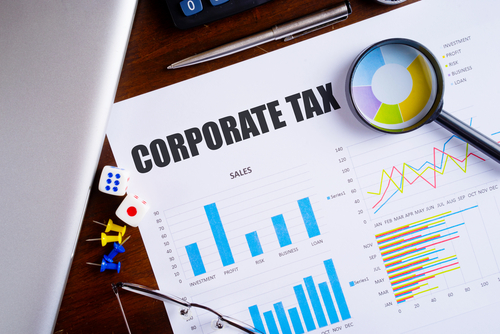Republican leaders in the House and Senate released an analysis by the bipartisan Congressional Joint Committee on Taxation (JCT) on the potential impact of a proposal to increase the corporate tax rate.

“Our incidence assumption, consistent with much of the economics literature, is that in the very short run, 2022 in this case, the incidence of the corporate tax is borne entirely by owners of capital. It is only in the longer run that our incidence assumption assigns some of the burden of the corporate tax to those taxpayers who earn labor income in addition to owners of capital,” the JCT analysis states.
U.S. Senate Finance Committee Ranking Member Sen. Mike Crapo (R-ID and U.S. House Ways and Means Ranking Member Rep. Kevin Brady (R-TX) said increasing the corporate tax rate would disproportionately harm U.S. workers, retirees, small businesses, and Americans who earn less than $500,000.
“This study supports what we’ve long known–corporate tax hikes are primarily borne by workers and retirees, and certainly the middle class–those making well below $400,000 a year,” Crapo and Brady said in response to the analysis. “America’s health and economic recovery remain very fragile and may get worse again before getting better. Unemployment is still too high, and inflation is a real concern. Now is not the time to raise taxes on the very people we are asking to lead us out of this crisis.”
For 2022, a corporate rate increase to 25 percent would raise revenues from U.S. taxpayers by $27.7 billion, the senators said, with about 57 percent of that additional revenue coming from taxpayers earning less than $500,000 per year. Of the $40.4 billion in increased corporate taxes in 2031, 66 percent would be borne by taxpayers with income under $500,000, they added.